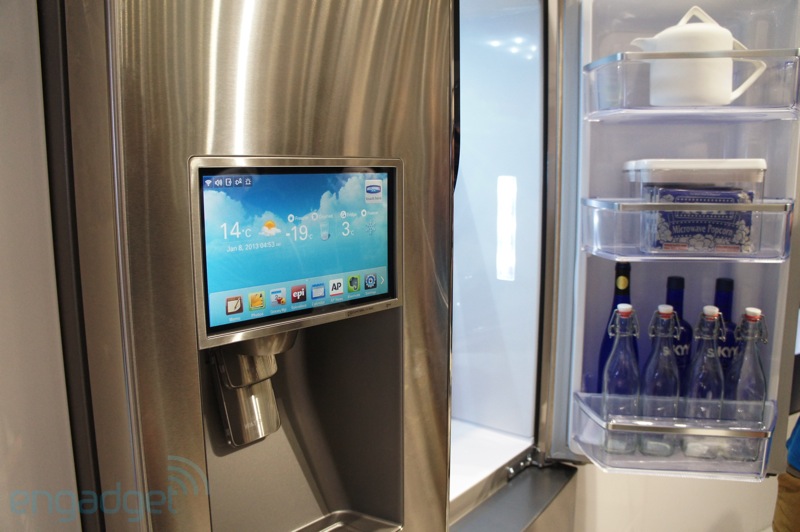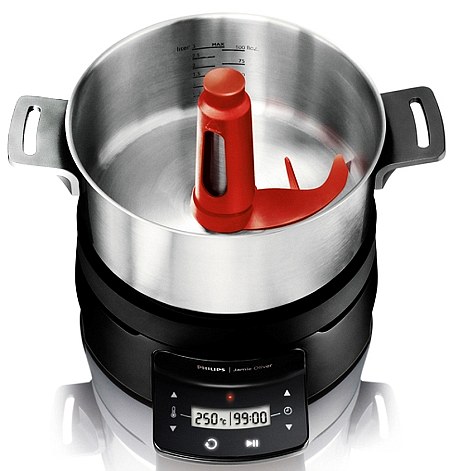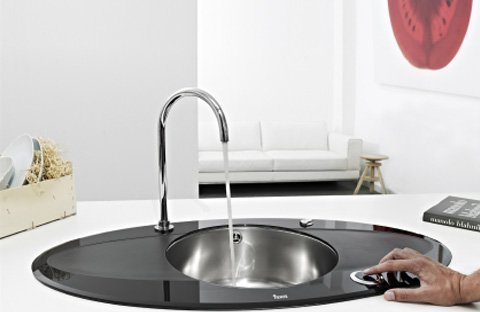June 5, 2013 | seo
As advancements in technology are emerging into almost every aspect of daily life, it’s surprising to learn that the kitchen remains underdeveloped in today’s technological society.
(Image/Dalia Tamari, Founder of Dalia Kitchen Design)
The kitchen, one of the most important spaces in the home, has yet to become a highly technical room in America.
In Europe, many manufacturers have begun developing new product designs from pots that blend while cooking to refrigerators that update grocery lists automatically.
Here’s a look at how the smart revolution is impacting kitchen appliances:
The Refrigerator
The refrigerator is one of the most used appliances. Samsung has developed a refrigerator model, T9000 which houses a touch screen to condense all of the clutter typically found on your fridge, into one place.
(Image/Engadget.com)
This refrigerator can sync work and e-mail calendars together, display photos and keep a running grocery list that can be accessed from your cell phone while in the supermarket. It can also give you recipe suggestions based on the ingredients in your refrigerator.
The Cooktop
A company called Teka has designed a cooktop perfect for the multi-tasker. When the pot comes to a boil, rather than allowing it to overflow, the burner will automatically lower the temperature to avert that all-too-common cooking disaster.
(Image/Daily Mail)
Phillips has developed a pot (shown above) that is separate from your cooktop that cooks your food and stirs it simultaneously.
The Sink and Faucet
Teka has also developed the iSink, a hands-free sink and faucet, that allows you to control the temperature and strength of the water flow.
(Image/Teka)
In case you thought they didn’t think of everything, both sides of the sink were created to dry the dishes after you wash them!
These kitchen appliances are not yet available in the U.S., as the designs await certification approval. While these innovations will change kitchens, many obstacles could create opposition once these products are introduced on a more wide spread spectrum.
Customers may find it difficult to learn the drastic modifications in the operating methods of these high-tech electronics and worry that such changes will alter the end result. Also, since these developments will be so new to the market, the cost of them will be greater. Nevertheless, once people are able to adapt to these new technologies, we will begin to see that such luxuries will decrease in cost as it increases in popularity.
Stay tuned to Dishing with Dalia on https://www.bostondesignguide.com for the introduction of new innovative products into the market so you can stay up-to-date with the latest and greatest in smart kitchens!






Add new comment